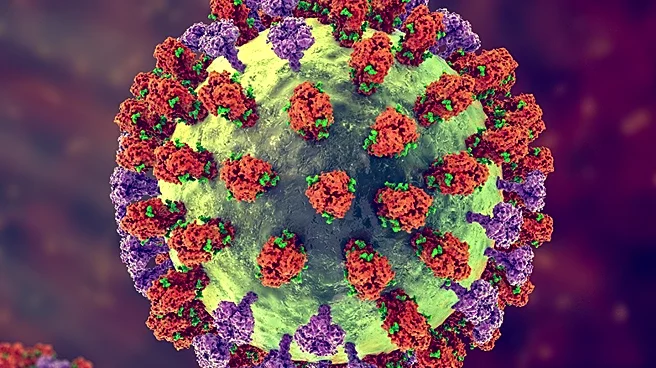What's Happening?
The CDC vaccine advisory panel has voted to limit eligibility for the upcoming fall Covid vaccine. This decision comes as part of ongoing efforts to manage public health risks associated with the pandemic. The panel's vote reflects a strategic approach to prioritize certain groups for vaccination, although specific details on the criteria for eligibility were not disclosed in the source. This move is part of broader public health strategies to mitigate the impact of Covid-19 as the nation continues to navigate the challenges posed by the virus.
Why It's Important?
Limiting vaccine eligibility has significant implications for public health policy and the management of Covid-19. By prioritizing certain groups, the CDC aims to ensure that those most at risk receive protection, potentially reducing hospitalizations and severe cases. This decision may affect public sentiment and trust in health authorities, as well as influence vaccination rates. Stakeholders such as healthcare providers, policymakers, and the general public will need to adapt to these changes, which could impact the overall strategy for controlling the pandemic.
What's Next?
Following the CDC panel's decision, healthcare providers and public health officials will likely focus on implementing the new eligibility criteria. Communication strategies will be essential to inform the public about who qualifies for the vaccine and why. Additionally, there may be discussions or debates among policymakers and health experts regarding the implications of this decision and its alignment with broader public health goals. Monitoring the impact of these changes on Covid-19 case numbers and healthcare system capacity will be crucial in the coming months.
Beyond the Headlines
The decision to limit vaccine eligibility raises ethical considerations about access to healthcare and the prioritization of certain groups over others. It may also prompt discussions about the balance between individual rights and collective health benefits. Long-term, this approach could influence future public health strategies and policies, particularly in how vaccines are distributed during health crises.










